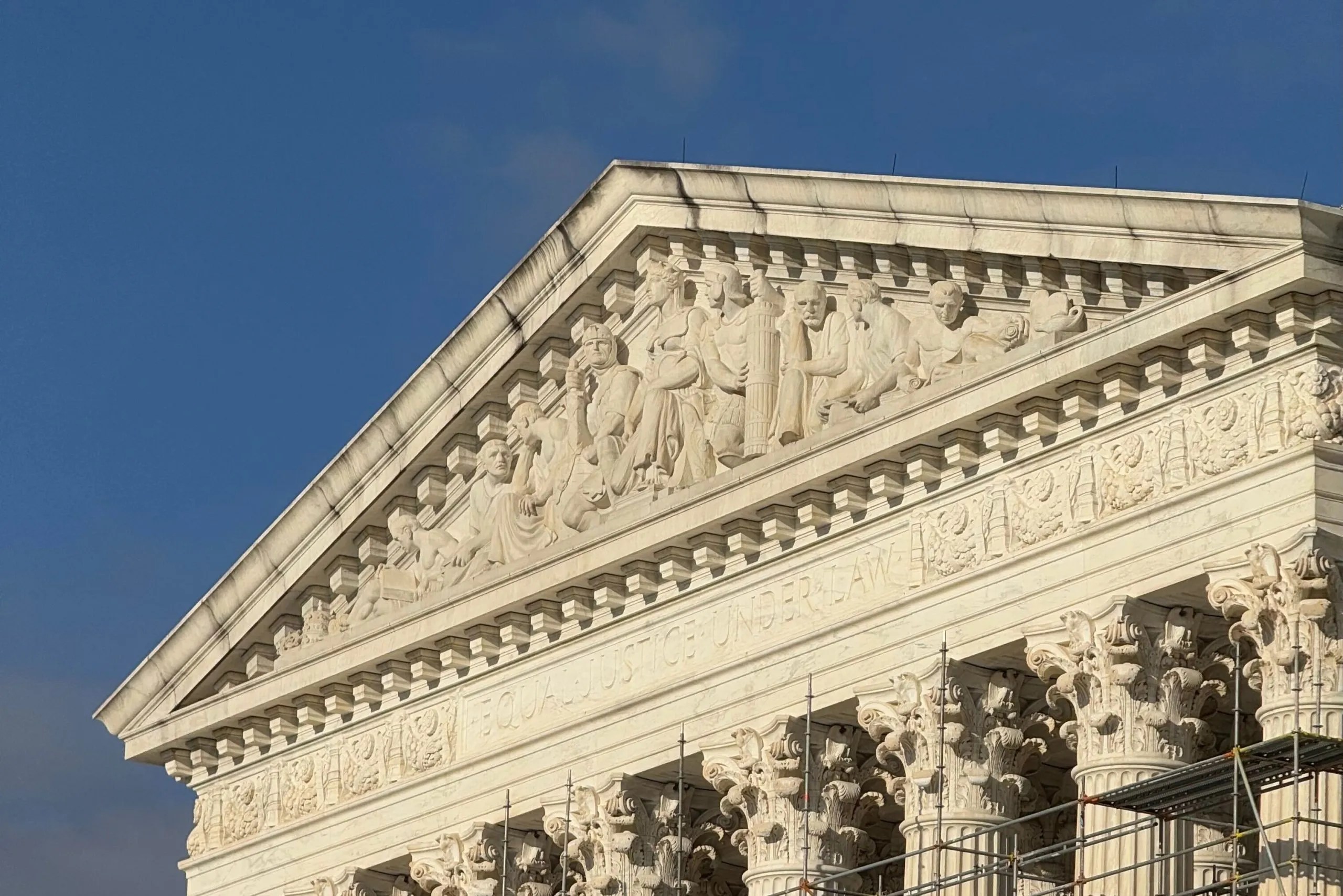SCOTUStoday for Wednesday, September 24


On this day in 1789, President George Washington signed the Federal Judiciary Act into law, establishing the federal court system. We suggest you celebrate by reading SCOTUSblog.
Morning Reads
- Supreme Court decision on Donald Trump’s firing of Lisa Cook looms over the Fed (Claire Jones, Adam Samson, and Lauren Fedor, Financial Times) — Federal Reserve leaders are anxiously awaiting the Supreme Court’s response to the Trump administration’s request to be allowed to fire Fed Gov. Lisa Cook. “Officials are increasingly worried that if the Supreme Court allows for Cook’s removal, even temporarily, it will give the president the green light to begin picking off the central bank’s most senior officials one by one,” according to the Financial Times. “In many ways, this decision is for all the marbles,” said Lev Menand, a professor at Columbia Law School.
- Explainer: Can Trump’s $100,000 fee for H-1B visas withstand legal challenges? (Daniel Wiessner, Reuters) — On Friday, President Donald Trump signed a proclamation on the H-1B visa program, which enables companies to bring highly skilled foreign workers to the United States. Under the new rules, the fees associated with an H-1B visa will rise from $2,000-5,000 to $100,000. But it’s not yet clear if that cost increase will hold up in court, according to Reuters. “Trump in the proclamation invoked his authority to restrict certain foreign nationals from entering the country when it would be detrimental to the country’s interests. The U.S. Supreme Court in the landmark 2018 case Trump v. Hawaii said that power is very broad and upheld a travel ban Trump had enacted targeting several Muslim-majority countries on national security grounds. But some legal experts said that the national security interests at stake in that case are distinct from Trump’s economic justification for the $100,000 fee, which may not receive as much deference from the court.”
- Kennedy memoir sheds light on former center of Supreme Court gay rights, abortion rulings (Maureen Groppe, USA Today) — In his forthcoming memoir, set to be released on Oct. 14, former Justice Anthony Kennedy reflects on his role in high-profile disputes over gay marriage and why he nearly left the court over his opposition to abortion, according to USA Today. “Because of my ever-constant belief that life must be protected from the moment of conception, I struggled with the idea that the Constitution should allow some choice to end a pregnancy,” wrote Kennedy, who is Catholic. “The struggle led me to wonder whether it would be wrong for me, morally, to stay on the Court if doing so would require me to rule under the law that women have the right to end a pregnancy in its early, pre-viability stage.” Kennedy ultimately chose to stay on the court, and in 1992, “helped craft the plurality opinion in Planned Parenthood v. Casey, which upheld a woman’s right to an abortion even while permitting new state restrictions.”
- A Charlie Kirk Poster Reignites Debate Over When Businesses Can Refuse Service (Natasha Khan and Lauren Weber, Wall Street Journal) — Earlier this month, workers at an Office Depot in Kalamazoo, Michigan, refused to make copies of a poster honoring Charlie Kirk, which they called “propaganda.” Although the workers involved were fired by Office Depot, which has apologized for the incident, their actions “revived a national debate over when businesses or their employees can turn away customers whose views they oppose,” according to the Wall Street Journal. “Such encounters have become the subject of court cases in recent years over the rights of businesses to deny service on the grounds of freedom of expression. In 2023, the Supreme Court decided a case involving a Colorado web designer over a claim that the First Amendment entitled her to refuse commissions for same-sex wedding websites. The court sided with the designer, finding that she was exercising her right to express her views, as protected by the First Amendment.”
- Court rulings cast doubt on California mask ban for federal officers (Dan Walters, CalMatters) — Over the weekend, California Gov. Gavin Newsom signed several bills related to the Trump administration’s crackdown on illegal immigration. Among them was a measure that prohibits members of law enforcement agencies, including federal officers, from wearing “a facial covering in the performance of their duties.” Columnist Dan Walters criticized the bill, called SB 627, in an opinion piece for CalMatters, arguing that “Newsom and any other critics of ICE tactics are delusional if they believe federal officers will be arrested and prosecuted for wearing masks.” He continued, “State and local authorities have no power to arrest federal officers for official actions, no matter how questionable they may be, which was made clear by a U.S. Supreme Court decision involving a U.S. marshal fatally shooting a former California Supreme Court justice in 1889 and a 1972 shooting death of a suspected drug dealer in Humboldt County.”
SCOTUS Quick Hits
- Zachary Shemtob, SCOTUSblog’s executive editor, appeared on Tuesday’s episode of Ballotpedia’s podcast to help preview the 2025-26 Supreme Court term.
- A response brief to the Trump administration’s emergency application asking the court to allow for the firing of Fed governor Lisa Cook is due on Thursday.
- The 2025 inaugural SCOTUSblog Summit is on Thursday.
- A response brief to the Trump administration’s emergency application urging the justices to allow Trump to end protected status for Venezuelans is due on Monday.
A Closer Look: Justice Souter’s Book List
When former Supreme Court Justice David Souter died in May, Chief Justice John Roberts praised him for bringing “uncommon wisdom and kindness” to his “lifetime of public service.” A recent SCOTUSblog post from one of Souter’s former clerks, Mathew Rosengart, makes it clear that some of that “uncommon wisdom” stemmed from Souter’s deep love of reading; he was a fan of everything from religious texts to classic literature to modern fiction.
Rosengart and his co-clerk during the 1987-88 term of the Supreme Court of New Hampshire were so struck by their boss’ passion for reading that they asked him to prepare a “Top 10 Book List.” The next summer, Souter delivered one, although it actually contained 12 books and references to several others. Rosengart recalled returning to the list again and again over the years during conversations with the justice.
“He would quiz me each year, genially, about my progress making it through his list, and each year I would have to confess failure in completing it, especially Proust, which I told him I just could not find the time for and which, regardless, I explained was beyond my capacity to appreciate fully. True to form, and as was the case with everything Souter, he would encourage me, just as he would when I would have to confess ignorance regarding the numerous literary or other allusions or quotations (often ancient ones) he might fluently, and unpretentiously, introduce into a conversation, assuming I would understand the reference,” Rosengart wrote.
Without further ado, here are the 12 books on Souter’s book list:
- “The Education of Henry Adams” by Henry Adams
- “Remembrance of Things Past” by Marcel Proust
- “Moby Dick” by Herman Melville
- “The Bear” (from “Go Down, Moses”) by William Faulkner
- “The Portrait of a Lady” by Henry James
- “Dr. Thorne” by Anthony Trollope
- “The Life of Samuel Johnson” by James Boswell
- “The Wind in the Willows” by Kenneth Grahame
- “Memoirs of a Fox Hunting Man” by Siegfried Sassoon
- “Brideshead Revisited” by Evelyn Waugh
- “Our Town” by Thornton Wilder
- “The Outermost House” by Henry Beston
On Site
Contributor Corner
In his latest Courtly Observations column, Erwin Chemerinsky, a law professor at and the dean of the University of California, Berkeley School of Law, makes “a plea for transparency” to the justices and calls for broadcasting the announcement of opinions, televising oral arguments, announcing votes in all cases, sharing when specific decisions will be released, and offering clearer explanations of rulings.
Unlike so much surrounding the court right now, greater openness is something both liberals and conservatives should champion. Although obviously some aspects of the justices’ work must remain confidential, much of the secrecy surrounding the court seems unnecessary and even counterproductive.
You can access the rest of the piece here.
In his latest Immigration Matters column, César Cuauhtémoc García Hernández, an expert on immigration law and policy, analyzes Justice Brett Kavanaugh’s concurrence to the court’s recent decision allowing federal officers to more freely make immigration stops in the Los Angeles area. Hernández contends that the “concurrence suggests that at least one member of the apparent six-justice majority believes the Fourth Amendment … permits race-based immigration policing.”
Unlike the other justices in the majority, Kavanaugh went well beyond what was necessary to side with the government on the court’s emergency docket. By issuing a 10-page concurrence, he didn’t just explain his reasons for siding with the Trump administration’s contentious approach to immigration law enforcement in the L.A. area. Kavanaugh also made clear that, in his view, immigration agents can use multiple proxies for race without fear of judicial interference.
Read the rest of the piece here.
Posted in Featured, Newsletters

